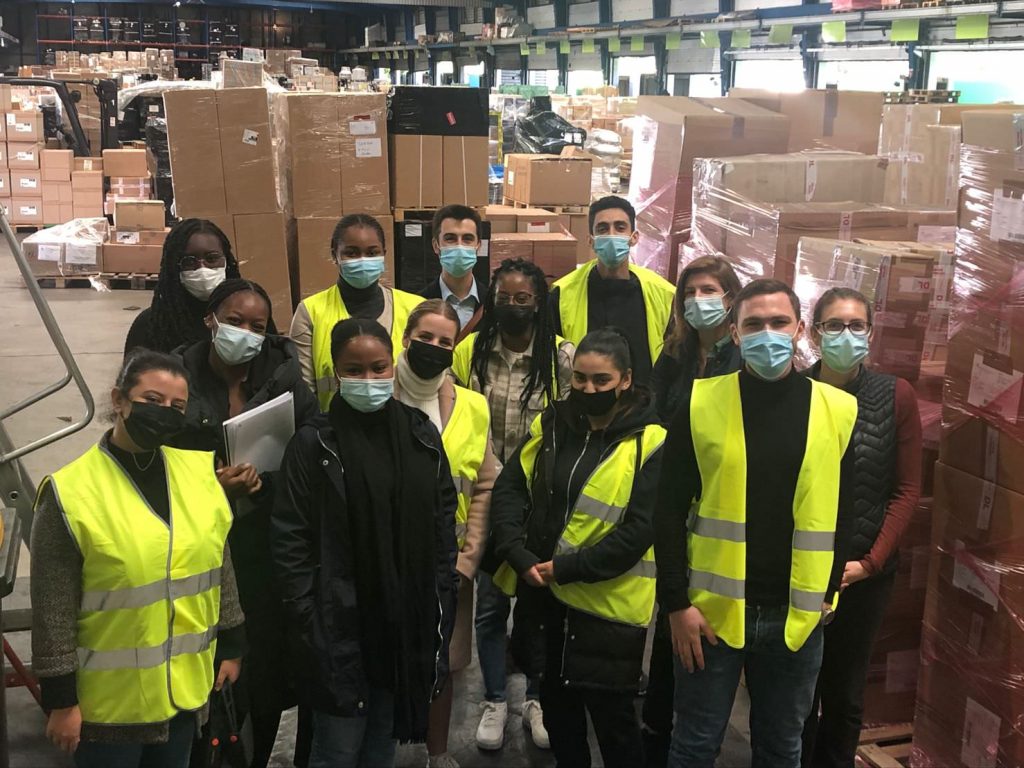team leaders and dock managers received management training
Training
In order to allow everyone to find their place and develop their skills, we have an active training policy: internally by increasing access to training for all our employees, by integrating work-study students, and by developing talent within the HEPPNER University.
A.Develop skills and encourage internal mobility
The Heppner Group is committed to providing each employee with the means to increase his or her skills in order to advance in his or her career path, and to this end encourages internal mobility. To do this, the group has acquired the following tools: a digital training platform that brings together a variety of modules, adapted to the needs of employees. Field training is also provided for each specific business need
Heppner Progress: increase the accessibility of training
Deployed in 2020, the group’s digital training platform brings together more than a hundred contents available in several languages, accessible in France and in the various subsidiaries. It allows the sharing of the group’s values and culture, particularly for new employees in the integration module. The platform also offers regulatory training in QSE (quality, safety and environment) as well as soft skills modules with, for example, basic management and leadership training or training for jobs and professions.
Virtual reality modules co-constructed with field employees
Virtual reality allows learners to be immersed in a simulated but realistic work environment. The scenarios for the loading and unloading situations were developed jointly by Artefacto – a Rennes-based company specialising in this field – and the teams from the Brittany region agency. And to facilitate access to these training modules for drivers and dock personnel, 10 agencies have equipped rooms in 2021, enabling employees to take advantage of these training courses during their working hours.
The transportation industry is one of the few sectors today where you can start without a degree and progress. To do this, you just need to be curious and committed, and there are HR development tools available, such as the Heppner Progress digital platform. Working at Heppner means being involved in a sector that is vital to the economy, but also knowing how to be creative in order to find solutions and respond to current societal issues. For 17 years I have been passionate about this profession where I started as a dock team leader. Heppner is a company where there is room for initiative, for individual and collective progress. I come here every morning as if it were my company!
The figures 2021
functional or geographical transfers took place within the group i.e. 23% of the positions were filled through internal promotion
learners
hours of training on Heppner Progress
Eco-driving is gaining ground
In 2022, 140 new drivers will be trained in eco-driving, after the first 70 in 2021. The aim is to share best practices, the benefits of which are both social – with a reduction in stress and accidents – and economic and ecological, with a reduction in fuel consumption and therefore in GHG emissions.
In order to reward eco-drivers, trophies will be awarded in 2023 at all levels of the group (branch, subsidiaries, group).
I joined Heppner 17 years ago as a team leader, working on the “platform” part of the courier service. I progressed in a linear fashion and today I am in charge of operations for the “departure” part, with the management of handling and subcontracting as well as the management of the transport plan.
We work in jobs where there is a great deal of physical pressure and stress. But the exciting thing about Heppner – and the reason I’m still here after 17 years – is that you have the freedom to do whatever you want, as long as you are curious and committed. The hierarchical relationships are direct, when there is a problem to manage, you can talk to your manager and decisions are made quickly. There is room for initiative, room to fail too and to try again by doing better. To sum up, I would say that at Heppner there is room to grow, to progress individually and collectively.
To put it simply, our job is to move goods from point A to point B… IT doesn’t really fire the imagination! But in reality, we are now at the centre of important societal issues because transportation is a key sector, but must at the same time evolve to reduce its carbon footprint. That’s what’s so exciting about this job: we must be creative to meet the needs! In concrete terms, Heppner is focusing on two major issues: the evolution of tractor motorisation is the first subject. And the second challenge is the digitalisation of our businesses: by refining our data management we can optimise transportation plans. We are starting a data sharing project with a start-up’s software (DC Brain) to analyse how to have an impact – with potential productivity gains, fuel savings and therefore CO2 savings.
First of all, I would tell them that it is a sector where one can still progress by arriving with a basic academic background, which is quite rare today. It is really possible and we have the tools with training and HR support to evolve. Then, I would say to them that the stakes are exciting because transport is vital for economic activity. That became very clear during the COVID crisis! And at the same time, transportation has a huge carbon reduction challenge to meet, it’s strategic.



